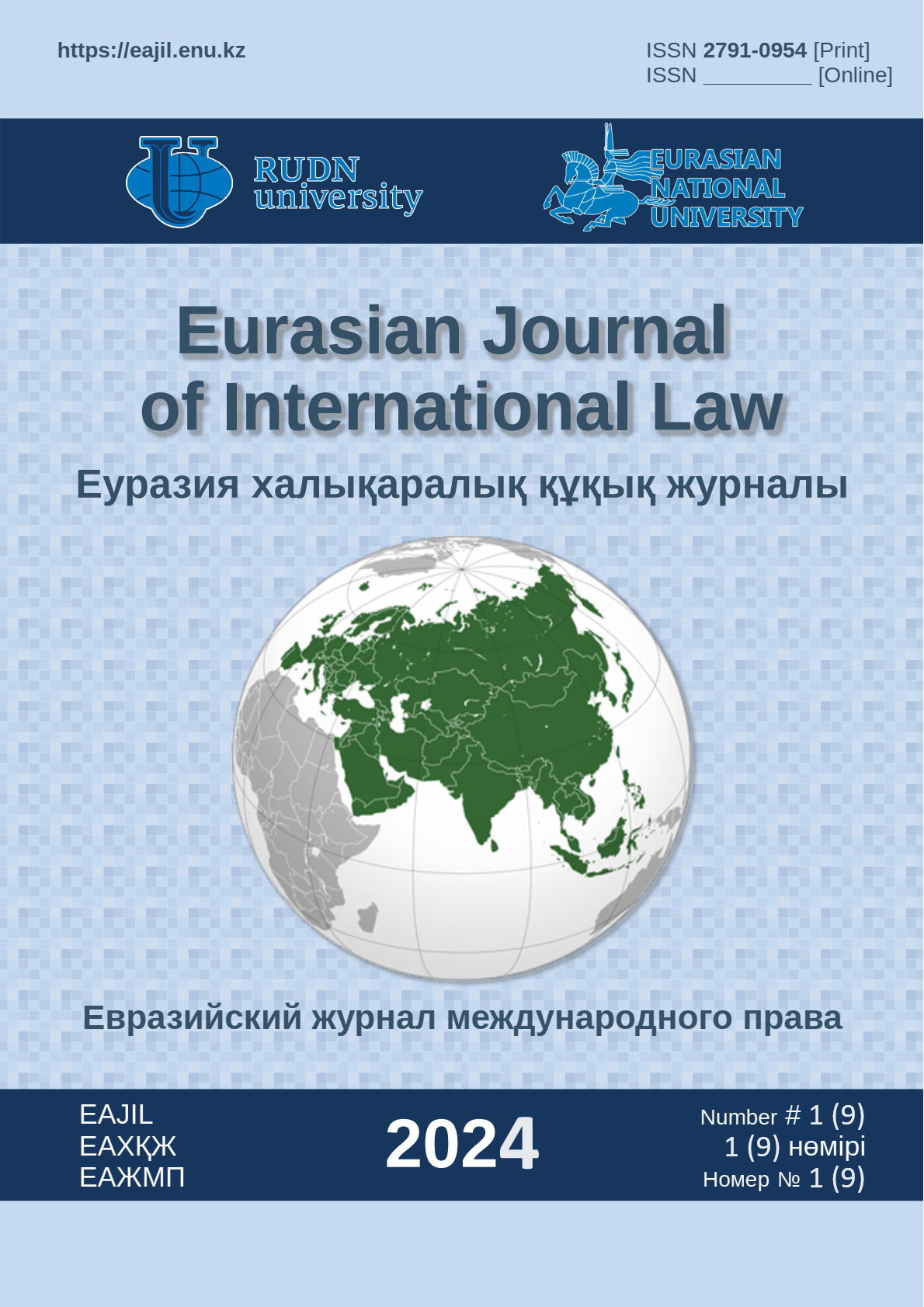Some aspects of implementation by states of decisions of international bodies
https://www.doi.org/10.32523/2791-0954-2024-8-1-22-32
Views: 22 / PDF downloads: 17
Keywords:
международное право, права человека, конституция, международная организация, международный орган, взаимодействие.Abstract
This article explores the relationship between a nation's constitution and the decisions made by international organizations within a sovereign country's territory. It analyzes international legal documents and examines how international law aligns with national law, particularly in the context of human rights. The article emphasizes that, for individuals residing within a specific country, their primary legal framework is the domestic law, which is built upon the nation's constitution. However, it acknowledges the significance of universally recognized human rights and freedoms outlined in the Universal Declaration of Human Rights of December 10, 1948, as a document bridging international and national law. The conclusion suggests that a productive approach to protecting human rights involves harnessing the potential of international, integration, and national legal systems.


